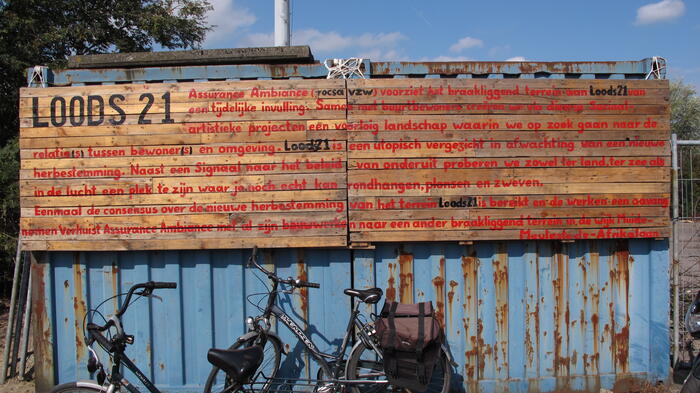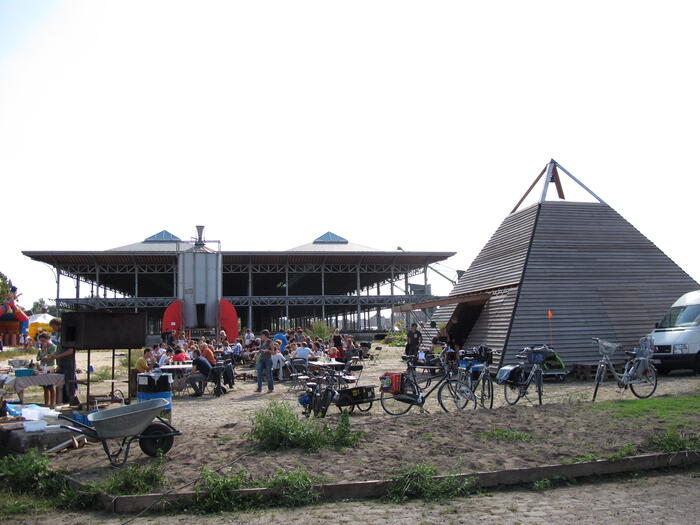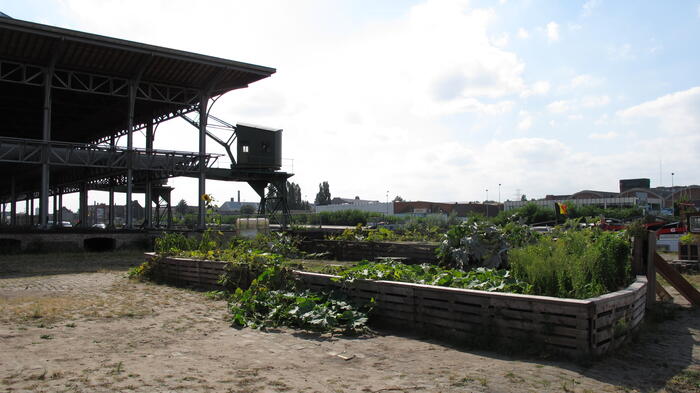Rocsa
Part of the gent plant people
Details at http://www.rocsa.be
Rocsa is an arts organisation creating projects through intercultural action led by Artistic Director Ernst Marechal.
Ernst and his team decided to create a community space for the unique and diverse community of Muide located just north of the city centre. Muide's demographic is made up of migrant families and an increasing population of middle class western Europeans. Muide is like an island, surrounded on three sides by water. Rocsa chose Loods 21 as the site, an empty lot along the canal within easy reach of the residents on their peninsula.
The lot is an old industrial shipping site ripe for future property development. Ernst saw the potential to use the area to create a temporary space for residents to celebrate their diverse cultures. In essence a place for them to call their own while they live together in this unique area.
Rocsa first set out to create physical spaces where locals could come together for any kind of purpose. They built a rocket from an old port silo, a space for children to climb and dream. Ernst also worked with a French artist to design a community meeting space. In June a huge wooden pyramid was built with help from the local community. A common space was born, and it was up to the residents of the area to decide how they might like to use it. Ernst calls this a reverse social artistic project. By creating a space first, he has let the community decide what sort of ‘cultural projects’ they want to make, and in turn these projects are invested with greater meaning amongst residents – whether it be a place for more formal community meetings or simple social gatherings and meals. A bread oven was built near the pyramid. It has become very popular, with many locals using it to cook their cultural signature dishes.
Rocsa also built a community garden with no fences. Some locals have contributed to helping it grow, others have simply harvested the crops. Rocsa leaves it to the community to self-police the process and decide how the communal space can exist.
Rocsa is also presenting a number of art projects on the site including workshops and concerts. One of their big themes is based around the idea of looking at the site vertically – getting to know the sky and stars as markers of the local landscape. Over time Ernst plans to document the vertical space by producing an almanac, a reference book detailing this site from the skies, from the local zodiac to sunrise and sunset times. In early October 2012 Rocsa launched the project with a concert, and working with scientists and astrologers they are creating a local walk encouraging people to look upwards and learn about the visible sky. They are also planning a big party on December 21st (the end of the Mayan Calendar) where they will interview residents and showcase their diverse religions and belief systems related to the sky and the future. They also plan to bake bread until dawn, heralding a new beginning, if indeed the world doesn’t end…
On a bigger picture level, Ernst views Rocsa’s role as the opposite of autonomous city development where governments build structures without community participation. He believes the project at Loods 21 as an opportunity to connect people to city ‘developments’ where they can determine the direction and movements of their activities. He believes that the government should place more trust in the people to decide their own future. And in doing so, he sees projects like this as temporary, rising up around a particular context for a particular group of locals. In a few years, this site may have a new future, and when it does, Rocsa will also move to another space and help activate social participation in a different area around a different social context.
This project is an interesting ‘intervention’, related to a particular cultural landscape at a particular period. It involves bringing together a community around a space through common activities such as growing plants and cooking meals.



